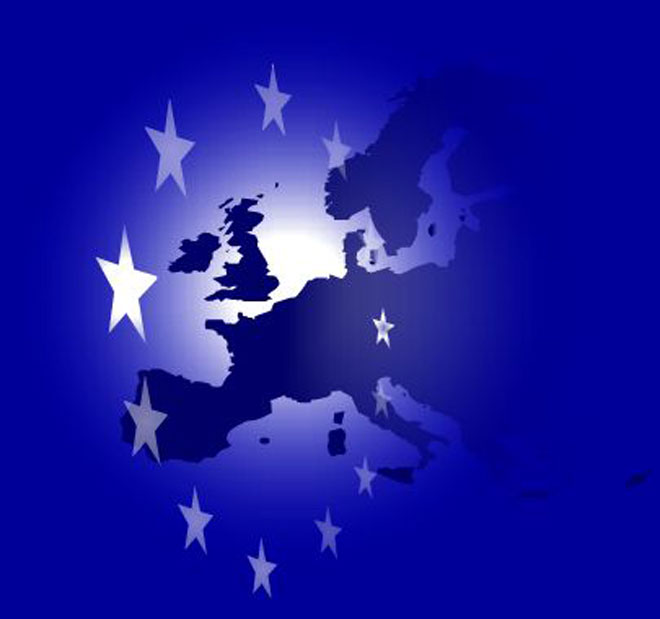Georgia, Tbilisi, Aug. 9 / Trend N.Kirtzkhalia /
Only participants of the conflict in Georgia - Georgia, Russia, Abkhazia and South Ossetia, may resolve it, but not the EU observer mission, EU Observer Mission Head in Georgia Hans Joerg Haber said in his article.
"The European Union and in particular the EU observer mission, can only create an environment of opportunities for resolving conflicts on the Georgian territory. It can not regulate the conflicts itself, only parties to the conflict can do it. Therefore, they must be prepared to take full responsibility for the sustainable and long-term solution for the well being of all people living in the region," Haber said.
The article notes that after the placement of an EU observer mission the situation on the territories adjacent to the administrative borders of Abkhazia and South Ossetia, are more stabilized. "But we have no illusions that the stabilization is equivalent to solving the conflict. The Georgian population was able to try it since 1993 and until 2008, when, despite the agreement on stabilization and on-site presence of international organizations, the fighting is inflamed," he said.
The EU observer mission remains true to its commitments and will redouble efforts to connect the parties in efforts to restore confidence. "Although I am firmly convinced that, despite the best intentions of the international community, the task of addressing the root causes of conflict, primarily rests with the parties to the conflict. In addition, Tbilisi, Moscow, Tskhinvali and Sukhumi should take into account the interests of citizens and make decisions in accordance with this, "Haber said.
According to him, the normalization was the first and most important task, which stood in front of the mission. "In the beginning the attempts of the mission were designed to make life of people living in territories adjacent to the administrative borders of Abkhazia and South Ossetia, and displaced by the fighting men, returned to normal," he said.
"Withdrawal of Russian forces from the adjacent area (administrative boundaries), eight days after EU observers began patrolling allowed about 30,000 IDPs to return to their homes. While their departure from their places of temporary stay does not solve the longstanding problem of IDPs in Georgia, because 30,000 IDPs displaced in previous conflicts still unable to return to their homes in South Ossetia, most of them (houses) are likely to have been destroyed during the August 2008 war," Haber said.
Haber appraised the Georgian government's work in relation to refugees.
Haber said the EU mission seeks to play an impartial role in the specific issues that affect the environment in terms of safety in the territories adjacent to the administrative borders, as well as the lives of ordinary citizens on both sides of the dividing line.
Haber also noted that Georgia complies with all obligations of the Memorandum of Understanding signed Jan. 26, 2009, according to which Georgia unilaterally assumed the restriction on the placement of both armed forces and heavy military equipment around South Ossetia and Abkhazia to the south. However, he noted that the Memorandum of Understanding is a proof of Georgia's desire to follow the principle of non-use of force, as provided in the six-point agreement.
A good example of a Memorandum of Understanding demonstrates an important principle, in particular, that in a situation where the parties to the conflict can not reach a formal or informal agreement, unilateral concessions on the one hand may be the only way to achieve progress. As a result, the side that goes to such assignment will receive no harm, but to actually be able to take advantage of this, the article says.
"I believe that recognition of this principle, which can be called "constructive one-sidedness", is the basis of the State Strategy of Georgia in the occupied territories and the Action Plan for inclusion. The strategy and action plan determines the direction of policy, which aims to assist citizens living in Abkhazia and South Ossetia.
Though goals formed in these two documents, obviously, are in contradiction with the provisions of the law on the occupied territories, which are more restrictive. Despite the respect for decisions of the Georgian parliament and the rule of law, one must take into account that this law was passed under the emotional pressure of the August war.
Haber, who heads the mission that has a mandate to monitor existing and potential results as the law and the Action Plan, the Georgian authorities should try to maintain a consistent approach and correct that inconsistency, which is visible between the law on the one hand and the Strategy and Action Plan on the other hand, and should do so in favor of the latter.
Do you have any feedback? Contact our journalist at [email protected]






